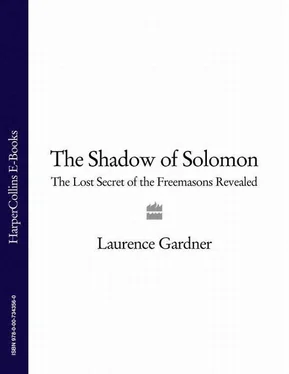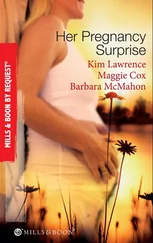1 ...7 8 9 11 12 13 ...24
3 Royal Society
The Transition
It is on record that the first mason to be installed south of the Scottish Border was the statesman Sir Robert Moray. Knighted by King Charles I, this eventual close friend of Charles II was made a Freemason at Newcastle in 1641. 1Freemasonry was very much a part of the Stuart tradition and, in 1601, King James VI of Scots had been initiated at the Lodge of Scone two years before his arrival in London as James I of England. His son and grandson, Charles I and Charles II, were also both patrons of Freemasonry.
Moray’s initiation does not strictly qualify as an English installation because the lodge concerned was a travelling branch of the Lodge of Edinburgh, and Moray was himself a Scot. But Elias Ashmole, the antiquarian and founder of Oxford’s Ashmolean Museum, was subsequently initiated into Freemasonry at Warrington, Lancashire, in October 1646. Hence, he is officially regarded as being England’s first home-grown Freemason. His diary, however, gives the names of those present at his induction and, as pointed out by the Curator of the United Grand Lodge of England some years ago, the seven men who formed this lodge must have been Freemasons before Ashmole. 2It is, therefore, clearly incorrect to claim that Freemasonry in England began when four gentlemen’s tavern clubs amalgamated to form a Grand Lodge in 1717.
Ashmole’s keen interest and involvement in hermetic magic is not generally mentioned in masonic works concerning him, since a practising alchemist is not the desired image of England’s first Freemason. In contrast, however, the Ashmolean Museum has no problem with the subject, and makes the point that Ashmole used the pseudonym James Hasolle for his first book on alchemy, Fasciculus chemicus. 3The fact that Ashmole was also Windsor Herald and Treasurer of the College of Arms holds a far greater appeal for idealized masonic society, but in Restoration times these two seemingly diverse facets would have been unremarkable. His Theatrum chemichum Britannicum, published in 1652, was of primary importance to the Rosicrucian movement ( see page 49) in that it was a collated synthesis of English alchemical texts, and became a valuable reference source for manuscripts otherwise hard to access.
It is beyond dispute that Freemasonry of a ‘speculative’ style came into England from Scotland when the two Crowns were united in 1603. But it is also apparent that in ‘operative’ terms the London Company of Freemasons was granted a coat of arms as far back as 1472. Equally interesting is the fact that in 1655 the name was changed to the London Company of Masons. This appears to indicate that the word Freemason had taken on a new connotation—relating now more to a speculative craft, rather than to a particular form of operative stonemasonry. This still does not explain why the word Freemason is not found in etymological dictionaries of the early 1700s, but it does suggest that a key operative guild wished to draw a distinction between its own membership and that of the speculative lodges.
It appears that Freemasonry has been portrayed very strangely since 1723—a hotchpotch of disconnected legends and a general lack of cohesion, with the reason given that the truly enigmatic secrets had been lost. The actual reason for the vagueness of otherwise intellectual men was not so much that everything had gone missing after the 1688 Revolution. It was more a question of their obstinacy in not acknowledging the facts of the matter. Information was there to find if Anderson and his allies had cared to look, but the political situation was such that they preferred not to do so.
This attitude arose after 1715, when James Francis Edward Stuart, the son of the exiled King James II (VII) made a bid to regain the crowns of his ancestral heritage. Soon after the coronation of George I, James Francis was proclaimed as the rightful King James VIII of Scots by Stuart adherents in Aberdeen, Brechin, Dundee, Montrose, Perth, St Andrews and Edinburgh. He then sailed to Scotland from Dunkirk, and in September that year his standard was raised at Braemar. His supporters seized Inverness and Perth from the Hanoverian guard, but they failed to take Edinburgh and Stirling castles, and their advance was halted at Sherriffmuir. South of the Border their penetration was feeble, and within a few weeks the 1715 Rising was terminated by a surrender at Preston, Lancashire, on 14 November. Soon afterwards, the deflated James Francis returned to France.
Despite its initial enthusiasm, the 1715 rebellion was one of the worst campaigns ever organized. But it was not destined to be the last Stuart attempt at restoration, and the people of Britain began to question their personal loyalties and sympathies: Were they Stuart or Hanover supporters?
In Latin, the name James is rendered as Jacobus —and from the time of the Stuart exile, their supporters had become known as Jacobites. Pre-1688 Freemasonry in Scotland and England had ostensibly been a Jacobite institution. But the post-1717 English variety of Anderson and his friends was essentially Hanoverian—a newly devised pseudo-masonry with no real provenance of its own. Whatever information might have been available from previous sources, it would have been unacceptable to the hard-line Hanoverians because it was of Scottish origin. Consequently, much of the new-style English Freemasonry has since bewildered masons and non-masons alike because its weak, often incomprehensible, tradition leaves so much to be desired. Only the introduction of charitable objectives and precepts of moral idealism appear to give it any meaningful substance, but we should not judge too hastily in this regard since there is a good deal more to uncover. Meanwhile, back in 1738, since Christopher Wren was a deceased mason of the old school it was convenient to blame him for spoiling everything!
So, what was Christopher Wren’s ‘old school’ of masonry? The picture comes together easily by looking at those few men of his acquaintance whom we have met already: King Charles II, Sir Robert Moray and Elias Ashmole—Freemasons all, but what was their communal meeting ground? It was the Royal Society at Gresham College in London. The Royal Society was, and is, a scientific academy for the purpose of studying natural philosophies. Freemasonry had the very same objectives and, even today, the ritual makes it clear that members are encouraged to ‘devote time to the study of such liberal arts and sciences as may be within the compass of your attainments’.
Although Freemasonry is a secretive society, this does not mean that the secrets held amount to anything that would benefit any outsider to discover. All lodge ceremonies and rituals are scripted and rigorously repetitive. Nearly everything in those rituals is publicly available. The secrets are nothing more than the signs, tokens and passwords of recognition by way of which one mason knows the degree status of another. These words and definitions are left as blanks in the published rituals—and that is the full extent of it.
The Liberal Arts ( see page 23) are not taught as subjects within the lodge environment, they are only alluded to. Neither are the sciences (as cited in the lodge dialogue), nor any natural philosophies taught or discussed. There are allegorical, illustrated lectures which point members towards an awareness of spiritual and philosophical enlightenment, but there is no practical instruction given. The lectures are delivered by way of rote, not by way of any qualified professional experience, and the lectures for each grade are not based on any ongoing research. They are fixed, rigid and the same, word-for-word, time after time. Thus, what it all amounts to these days is a ‘role play’, a costumed re-enactment of operating procedures that were followed in lodges at a time when new material was introduced and debated at each meeting. Freemasonry today exists as a framework for something that used to be a cumulative and progressive work experience. But the only ‘work’ necessary for lodge performance these days is that of learning scripted text off by heart.
Читать дальше












